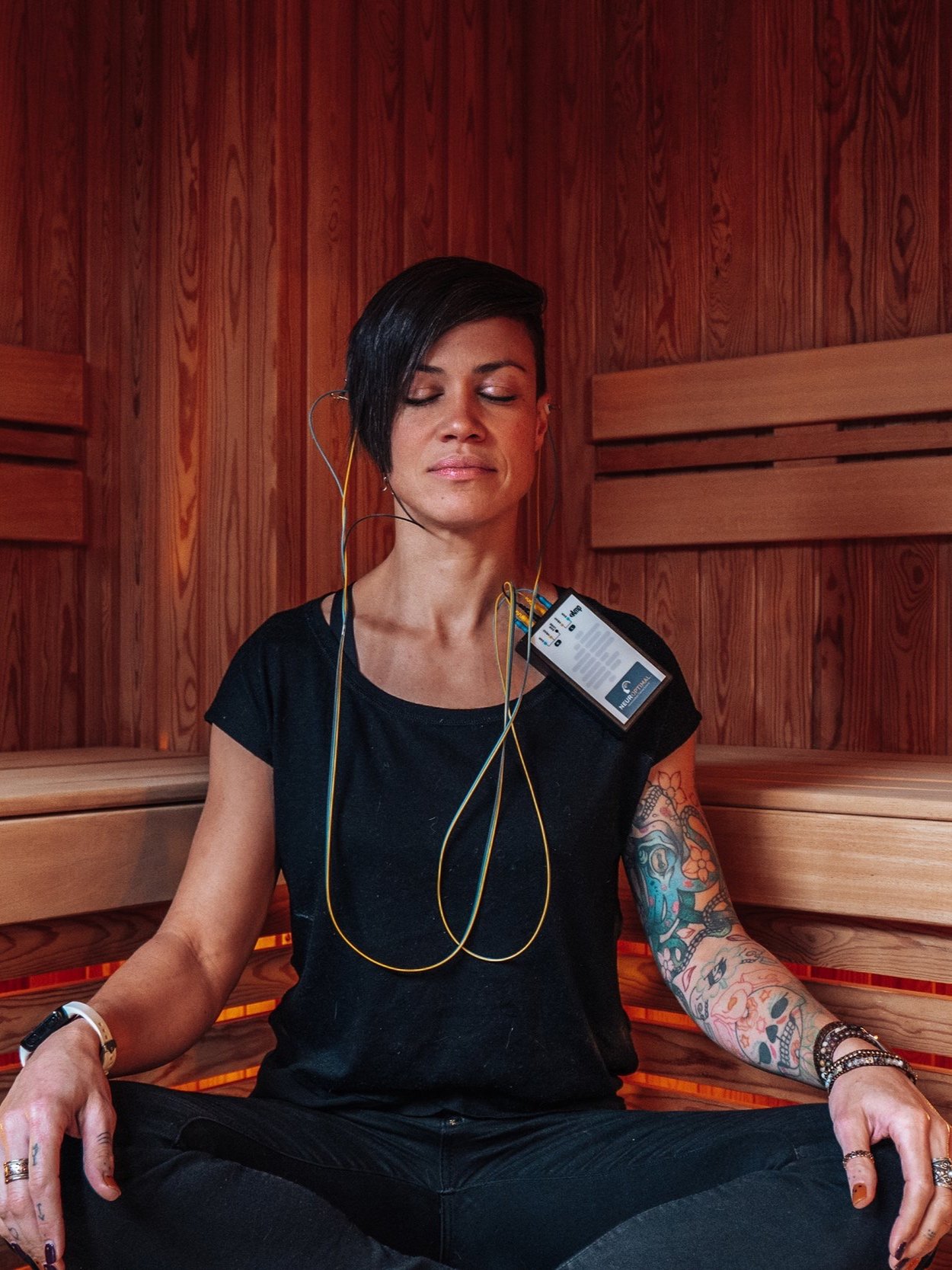
You are not what happened to you.
Trauma Therapy for Women Healing from Childhood, Relationship, and Religious Trauma
Reclaim Your Story
As a child, you didn’t get to write your own story. You didn’t choose the characters, the plot, or the ending—and yet, here you are, carrying a narrative that doesn’t feel like yours.
Maybe your story says:
You’re not good enough.
You’re too much and not enough, all at once.
You’re only lovable if you hide parts of yourself.
People can’t handle the real you.
You have to follow all the rules or people will leave.
You’ll never have the relationships you want.
You’re broken, messed up, or unlovable.
These beliefs weren’t written by you, but they’ve been running in the background of your life for years. Trauma therapy can help you take back the pen and rewrite your story with truth, clarity, and compassion.

From the Outside, You’re Fine. Inside, You’re Exhausted.
To the world, you look accomplished—educated, successful, maybe partnered or a parent. People see your achievements and assume you’ve got it all together.
But inside? It feels fragile.
You worry constantly about making others upset.
You second-guess your relationships, afraid of being blindsided or abandoned.
You doubt your judgment and fear being controlled or manipulated.
You struggle to trust others—or yourself.
You feel anxious in your body, restless in your mind, and unstable in your relationships.
The truth is: you’ve carried this since childhood. You learned the rules to stay small, safe, and acceptable. But those rules now keep you from the safety, stability, and love you long for.
It’s time to break the cycle.

My Approach to Trauma Therapy
Traditional talk therapy alone isn’t enough when trauma lives in both the body and the nervous system. That’s why my approach integrates relational therapy with somatic modalities like Brainspotting (BSP) and Accelerated Resolution Therapy (ART).
Clients often tell me:
“I know it wasn’t my fault, but it still feels like it was.”
“I know this person isn’t the person who hurt me, but it feels the same, and I feel can’t trust my own perceptions.”
“I know my fears aren’t necessarily facts, but my body still reacts like they are.”
That gap between knowing and believing is where trauma therapy does its most powerful work.
Together, we’ll help your “emotion brain” deeply believe what your “logic brain” already knows—so you stop reacting out of fear and start responding out of truth.
What Trauma Therapy Looks Like
In our work, you don’t have to decide in advance which techniques you’ll use—I’ll guide you every step of the way. My training in trauma, attachment, relationships, and neurodivergence allows me to adapt therapy to your needs and personality.
We’ll work on your “knowing” by:
Making connections between past experiences and present feelings.
Assigning responsibility where it belongs while building compassion for your survival strategies.
Separating past triggers from current emotions so you can choose your responses.
We’ll work on your “believing” by:
Using Brainspotting or ART to deeply process painful beliefs.
Resolving flashbacks, nightmares, and triggers.
Releasing stored trauma in the body through somatic work.
What Trauma Therapy Can Help You With
Feeling safe in your body and mind
Reducing anxiety and overthinking
Developing secure, stable relationships
Building healthy boundaries and communication
Increasing confidence and self-compassion
Learning resilient coping strategies
Trusting yourself and others again
Releasing shame and negative self-stories
Letting trauma stop running your life

Areas of Expertise
Complex Trauma (C-PTSD)
abuse, neglect, domestic violence, gaslighting, abandonment, oppression.
Relational Trauma
betrayal, enmeshment, power and control, non-consensual sexual experiences, bullying, or loss.
Childhood/Family Trauma
emotionally unavailable/immature/controlling parents, generational trauma.
Religious Trauma
high control dynamics, manipulation, gaslighting, shame, anxiety, trauma, deconstruction.
Trauma can also look like…
People-Pleasing
You give endlessly but neglect your own needs, fearing rejection if you set boundaries.
Anxiety & Overthinking
You replay conversations at night, searching for where you went wrong. You live in constant fear of upsetting others.
Insecurity in Relationships
You crave love but fear being “too much” or “not enough.” You hide your needs, then feel unseen and disconnected.
Shame
You grew up in judgmental or perfectionistic environments. You feel broken, not good enough, and ashamed of not being closer to your family.
Loneliness
Relationships feel hard to maintain. Friends or partners have disappeared without warning, leaving you believing something must be wrong with you.
Negative Self Stories
Despite being high-achieving, you feel like you’ll never measure up. Compliments bounce off. The story you tell yourself is always “I’m not enough.”
-

Accelerated Resolution Therapy (ART)
ART uses gentle eye movements and visualization to help your brain release stored trauma quickly and effectively. Many clients notice significant relief in just 1–3 sessions, making it a powerful tool for resolving painful memories and shifting negative beliefs.
-

Brainspotting (BSP)
Brainspotting uses the connection between your gaze and your nervous system to access and heal trauma at a deep level. By focusing on specific eye positions, your brain and body are able to process unresolved experiences in a way that feels natural and profound.
-

Neurofeedback
Neurofeedback helps retrain your brain to regulate itself. By receiving real-time feedback, your brain learns to spend more time in calm, focused, and balanced states—so regulation becomes your default rather than the exception.
-

Enneagram
The Enneagram is an insightful framework for understanding your core motivations, fears, and adaptations. It can help you recognize patterns that no longer serve you, deepen self-awareness, and create more authentic connections with others.
Take the First Step Toward Healing
You don’t have to stay stuck in the stories trauma wrote for you. With compassionate, evidence-based trauma therapy, you can feel safe in your body, confident in your relationships, and free in your life.

FAQs About Trauma Therapy
Q: What is trauma therapy?
Trauma therapy is a specialized form of counseling that helps you heal from painful experiences like childhood abuse, relationship trauma, high-control religion, or ongoing anxiety. It combines talk therapy with body-based approaches like Brainspotting and Accelerated Resolution Therapy (ART) to create deep, lasting change.
Q: How do I know if I have trauma?
Trauma is anything that overwhelms your ability to cope. Symptoms can include flashbacks, nightmares, anxiety, emotional dysregulation, low self-esteem, relationship struggles, or difficulty setting boundaries.
Q: How does trauma therapy work?
I combine relational therapy with trauma-focused modalities like Brainspotting, ART, and Emotion Focused Therapy. Together, we’ll address both the cognitive and body-based aspects of trauma for deep, lasting change.
Q: What issues can trauma therapy help with?
Trauma therapy can help with anxiety, people-pleasing, perfectionism, relationship insecurity, shame, negative self-stories, and the lasting effects of childhood or religious trauma. It supports you in building boundaries, self-trust, and healthier relationships.
Q: How long will I be in therapy?
It depends on your needs and goals. Some clients come for a short-term focus (6–8 sessions), while others engage longer-term (20+ sessions) to process multiple experiences or return for support when triggers arise. My goal is always for you to feel better as efficiently as possible.
Q: Do you offer online trauma therapy?
Yes. I work online with clients in Tennessee, Colorado, and Florida, and in-person in Ooltewah, TN (minutes from Chattanooga and North Georgia).
Q: Does online trauma therapy work?
Yes. Online trauma therapy can be just as effective as in-person sessions. Using secure video, I provide Brainspotting and ART for clients in Tennessee, Colorado, and Florida, helping you access therapy from the comfort and privacy of your home.
Q: How do we get started?
We’ll begin with a consultation form and a free 20-minute phone call. We’ll talk through your needs, answer questions, and see if we’re a good fit. If not, I’ll happily provide referrals to someone who might be a better match.


